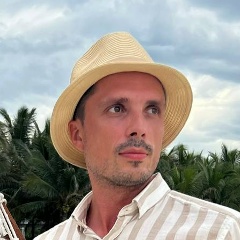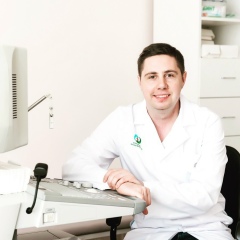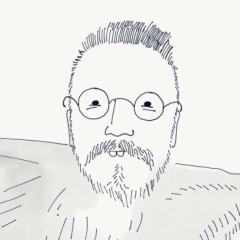#драманализ #кино #школа
Школа будущего в фильме "Расписание на послезавтра" (1978)
Большинство фильмов про школу говорят о том, кого и как в школе воспитывать, каким должна быть личность учителя. Самыми выдающимися из этой серии я бы назвал: "Мимо окон идут поезда", "Хористы", "Доживём до понедельника", "Ключ без права передачи", "Розыгрыш", "Учитель на замену".
И вот фильм, который пытается нарисовать школу будущего с точки зрения процесса образования. "Расписание на послезавтра". Можно сказать, что все вышеперечисленные фильмы подготовили почву для этой картины. Но не хронологически, а по смыслу.
В общем-то, понятно, что традиционная школа пыталась и пытается сейчас сформировать человека по образу и подобию. И именно так рассматривает значение слова ОБРАЗование. Меняется только модель для лепки. В эпоху социализма подавляется у ребёнка его собственное индивидуальное начало в пользу коллективного. Всё должно быть подчинено интересам советского общества. В эпоху постсоветской России образцом служит идеал человека-потребителя (вспомните слова бывшего министра образования Фурсенко). Это человек, занятый собой, своей карьерой, своим успехом, своими желаниями.
Но есть и другая стратегия. Это развитие творческой личности. Человека-творца, ориентированного на максимальную реализацию своих задатков, талантов, но на благо всего общества. К этому подводят нас все перечисленные фильмы и фильм "Расписание на послезавтра".
В последнем фильме перед нами экспериментальная школа будущего. Там, где личность не подавляется, а даётся полная свобода для творчества. Здесь нет традиционных учителей из педагогического ВУЗа. Во главе с директором с детьми работают научные сотрудники института. Классы - это научные лаборатории. Любой ученик может сформулировать любую научную гипотезу от вечного двигателя до металлического водорода, экспериментально проверить её, обосновать и защитить перед всем классом. Или, наоборот, опровергнуть существующую теорию. К учащимся отношение как к научным работникам. Конечно, здесь собраны не простые дети, а одарённые. Ведь это физ.-мат. школа им. Ландау.
В школу приходит учитель литературы Антонина Сергеевна. И очень вовремя. Здесь господствует мнение, поддерживаемое директором, что технарям "изящная словесность" не нужна.
Но приняв с ходу основную концепцию образования (уважение к личности ученика, общение на равных), Антонина Сергеевна на примерах показывает, в чём важность и нужность литературы именно для формирования личности успешного учёного. И похоже, убеждает не только ребят, но и директора. И он начинает проникаться к ней уважением. Если не сказать больше.
Извечный спор физиков и лириков заканчивается здесь примирением и плодотворным сотрудничеством. А именно это и нужно для развития гармоничной личности.
Школа будущего в фильме "Расписание на послезавтра" (1978)
Большинство фильмов про школу говорят о том, кого и как в школе воспитывать, каким должна быть личность учителя. Самыми выдающимися из этой серии я бы назвал: "Мимо окон идут поезда", "Хористы", "Доживём до понедельника", "Ключ без права передачи", "Розыгрыш", "Учитель на замену".
И вот фильм, который пытается нарисовать школу будущего с точки зрения процесса образования. "Расписание на послезавтра". Можно сказать, что все вышеперечисленные фильмы подготовили почву для этой картины. Но не хронологически, а по смыслу.
В общем-то, понятно, что традиционная школа пыталась и пытается сейчас сформировать человека по образу и подобию. И именно так рассматривает значение слова ОБРАЗование. Меняется только модель для лепки. В эпоху социализма подавляется у ребёнка его собственное индивидуальное начало в пользу коллективного. Всё должно быть подчинено интересам советского общества. В эпоху постсоветской России образцом служит идеал человека-потребителя (вспомните слова бывшего министра образования Фурсенко). Это человек, занятый собой, своей карьерой, своим успехом, своими желаниями.
Но есть и другая стратегия. Это развитие творческой личности. Человека-творца, ориентированного на максимальную реализацию своих задатков, талантов, но на благо всего общества. К этому подводят нас все перечисленные фильмы и фильм "Расписание на послезавтра".
В последнем фильме перед нами экспериментальная школа будущего. Там, где личность не подавляется, а даётся полная свобода для творчества. Здесь нет традиционных учителей из педагогического ВУЗа. Во главе с директором с детьми работают научные сотрудники института. Классы - это научные лаборатории. Любой ученик может сформулировать любую научную гипотезу от вечного двигателя до металлического водорода, экспериментально проверить её, обосновать и защитить перед всем классом. Или, наоборот, опровергнуть существующую теорию. К учащимся отношение как к научным работникам. Конечно, здесь собраны не простые дети, а одарённые. Ведь это физ.-мат. школа им. Ландау.
В школу приходит учитель литературы Антонина Сергеевна. И очень вовремя. Здесь господствует мнение, поддерживаемое директором, что технарям "изящная словесность" не нужна.
Но приняв с ходу основную концепцию образования (уважение к личности ученика, общение на равных), Антонина Сергеевна на примерах показывает, в чём важность и нужность литературы именно для формирования личности успешного учёного. И похоже, убеждает не только ребят, но и директора. И он начинает проникаться к ней уважением. Если не сказать больше.
Извечный спор физиков и лириков заканчивается здесь примирением и плодотворным сотрудничеством. А именно это и нужно для развития гармоничной личности.
# drama analysis # cinema # school
School of the future in the film "Schedule for the day after tomorrow" (1978)
Most school films talk about who and how to raise in school, what should be the identity of the teacher. I would call the most outstanding of this series: “There are trains passing by the windows”, “Chorists”, “We will live to see Monday”, “Key without the right of transfer”, “Rally”, “Teacher on replacement”.
And here is a film that tries to draw a school of the future in terms of the educational process. "Schedule for the day after tomorrow." We can say that all of the above films set the stage for this picture. But not chronologically, but by meaning.
In general, it is clear that the traditional school has tried and is now trying to shape a person in the image and likeness. And that is how the meaning of the word EDUCATION is considered. Only the model for sculpting is changing. In the era of socialism, the child's own individual principle is suppressed in favor of the collective. Everything must be subordinated to the interests of Soviet society. In the epoch of post-Soviet Russia, the ideal is the man-consumer (remember the words of the former Minister of Education Fursenko). This is a person engaged in himself, his career, his success, his desires.
But there is another strategy. This is the development of a creative personality. A man-creator, focused on the maximum realization of his inclinations, talents, but for the benefit of the whole society. All the listed films and the film “Schedule for the day after tomorrow” bring us to this.
In the last film before us is an experimental school of the future. Where the person is not suppressed, but given complete freedom for creativity. There are no traditional teachers from the pedagogical university. The research team of the institute is headed by a director with children. Classes are scientific laboratories. Any student can formulate any scientific hypothesis from a perpetual motion engine to metallic hydrogen, test it experimentally, substantiate and protect it in front of the whole class. Or, conversely, to refute the existing theory. Students are treated like scientists. Of course, not simple children are gathered here, but gifted ones. After all, it is a physical-mat. school them. Landau.
A teacher of literature, Antonina Sergeevna, comes to the school. And very on time. Here is dominated by the opinion supported by the director that techies "elegant literature" is not needed.
But having accepted the basic concept of education (respect for the personality of the student, communication on an equal footing) Antonina Sergeevna shows with examples what the importance and necessity of literature is for the formation of the personality of a successful scientist. And it seems to convince not only the guys, but also the director. And he begins to feel respect for her. If not more.
The eternal debate of physicists and lyricists ends here with reconciliation and fruitful cooperation. And this is exactly what is needed for the development of a harmonious personality.
School of the future in the film "Schedule for the day after tomorrow" (1978)
Most school films talk about who and how to raise in school, what should be the identity of the teacher. I would call the most outstanding of this series: “There are trains passing by the windows”, “Chorists”, “We will live to see Monday”, “Key without the right of transfer”, “Rally”, “Teacher on replacement”.
And here is a film that tries to draw a school of the future in terms of the educational process. "Schedule for the day after tomorrow." We can say that all of the above films set the stage for this picture. But not chronologically, but by meaning.
In general, it is clear that the traditional school has tried and is now trying to shape a person in the image and likeness. And that is how the meaning of the word EDUCATION is considered. Only the model for sculpting is changing. In the era of socialism, the child's own individual principle is suppressed in favor of the collective. Everything must be subordinated to the interests of Soviet society. In the epoch of post-Soviet Russia, the ideal is the man-consumer (remember the words of the former Minister of Education Fursenko). This is a person engaged in himself, his career, his success, his desires.
But there is another strategy. This is the development of a creative personality. A man-creator, focused on the maximum realization of his inclinations, talents, but for the benefit of the whole society. All the listed films and the film “Schedule for the day after tomorrow” bring us to this.
In the last film before us is an experimental school of the future. Where the person is not suppressed, but given complete freedom for creativity. There are no traditional teachers from the pedagogical university. The research team of the institute is headed by a director with children. Classes are scientific laboratories. Any student can formulate any scientific hypothesis from a perpetual motion engine to metallic hydrogen, test it experimentally, substantiate and protect it in front of the whole class. Or, conversely, to refute the existing theory. Students are treated like scientists. Of course, not simple children are gathered here, but gifted ones. After all, it is a physical-mat. school them. Landau.
A teacher of literature, Antonina Sergeevna, comes to the school. And very on time. Here is dominated by the opinion supported by the director that techies "elegant literature" is not needed.
But having accepted the basic concept of education (respect for the personality of the student, communication on an equal footing) Antonina Sergeevna shows with examples what the importance and necessity of literature is for the formation of the personality of a successful scientist. And it seems to convince not only the guys, but also the director. And he begins to feel respect for her. If not more.
The eternal debate of physicists and lyricists ends here with reconciliation and fruitful cooperation. And this is exactly what is needed for the development of a harmonious personality.
У записи 2 лайков,
0 репостов.
0 репостов.
Эту запись оставил(а) на своей стене Максим Петров























